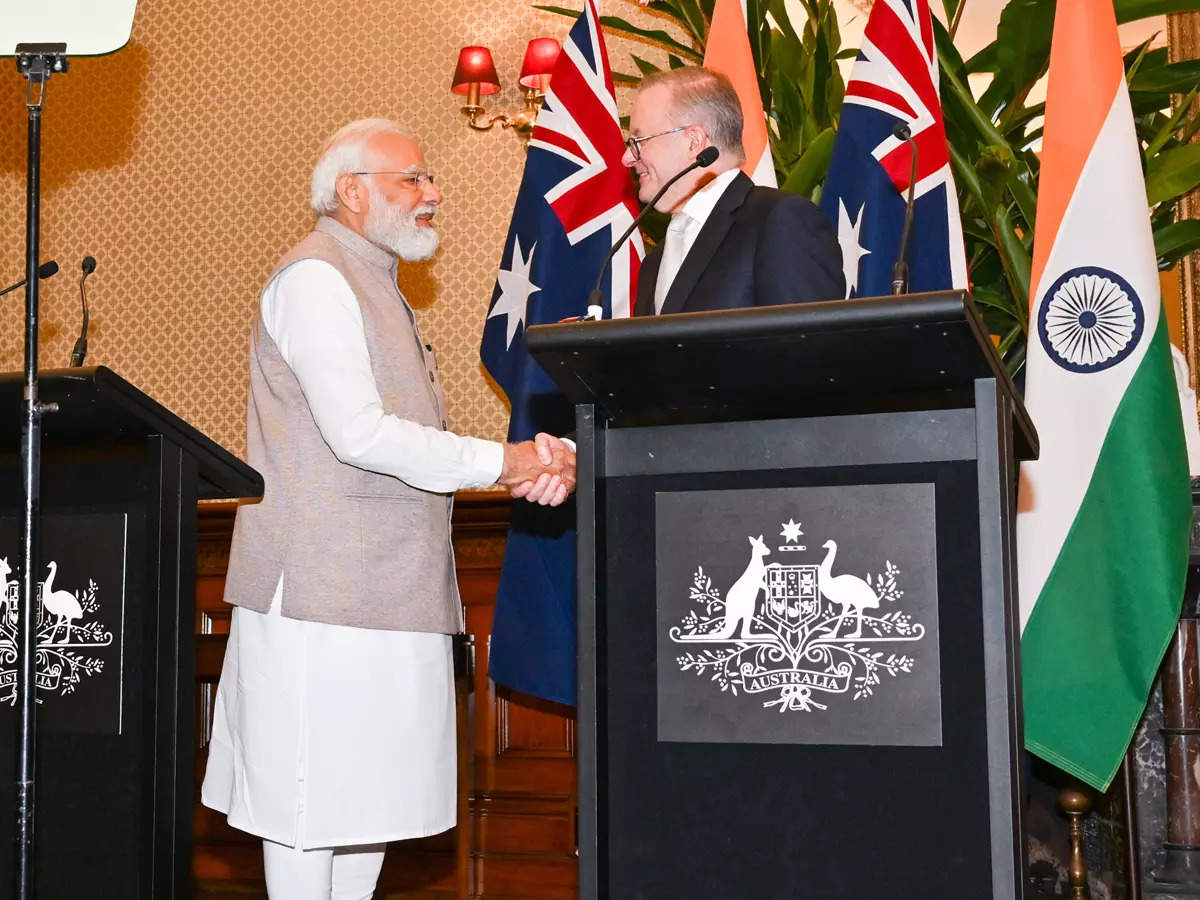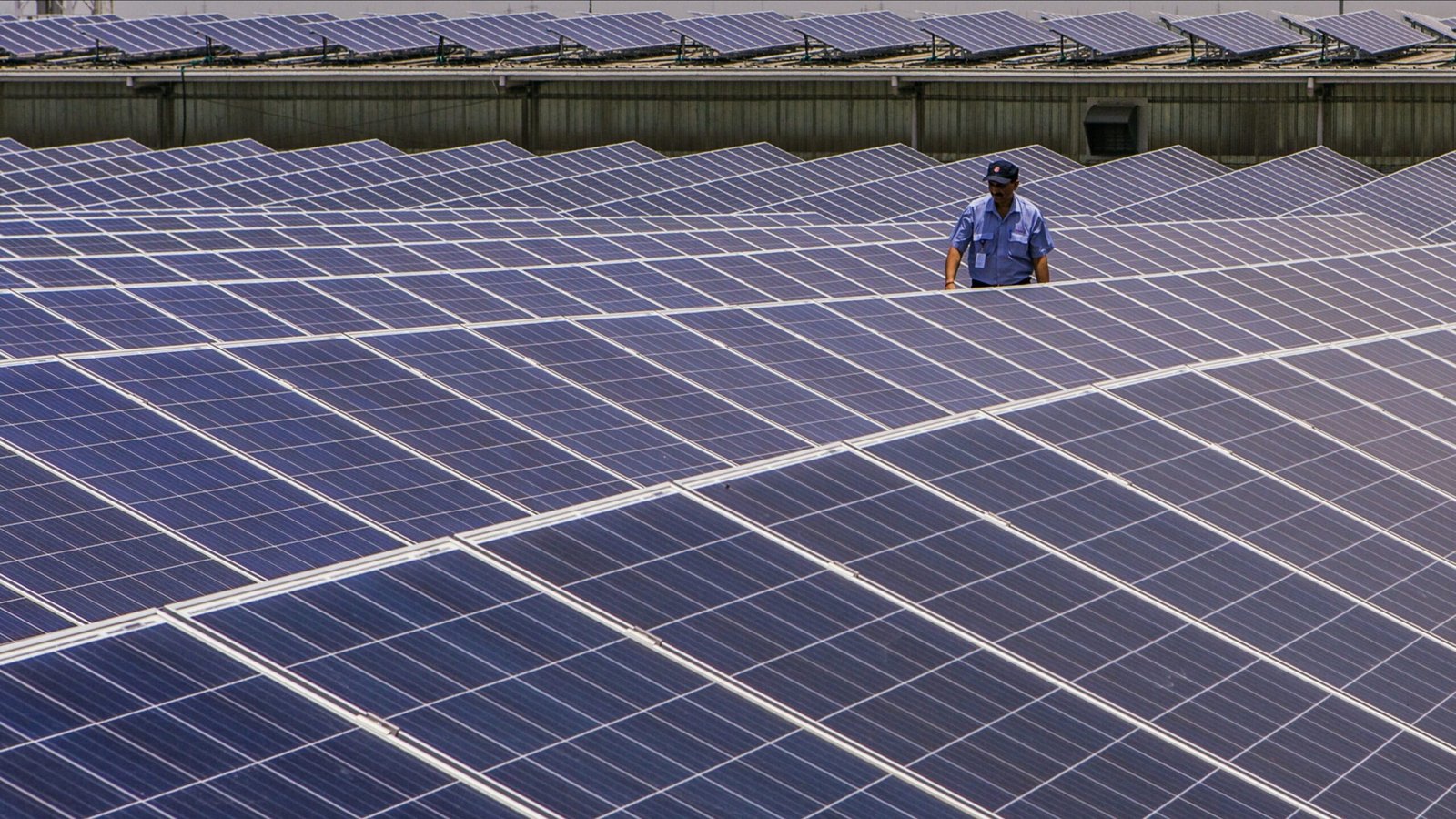Under the new arrangement, these graduates will be eligible to seek employment and engage in professional advancement without the need for visa sponsorship for a period of up to eight years
India and Australia recently inked an agreement that streamlines the process of migration for skilled workers and graduates between the two nations. Set to take effect on July 1 of this year, the agreement specifically benefits Indian graduates of Australian tertiary institutions who are on a student visa, reported nriaffairs.com.
Under the new arrangement, these graduates will be eligible to seek employment and engage in professional advancement without the need for visa sponsorship for a period of up to eight years.
The migration deal, hailed as a commendable step, is expected to open up numerous opportunities for young individuals and early career professionals in both India and Australia. This agreement was among two pivotal deals signed during Indian Prime Minister Narendra Modi’s recent visit to Australia, marking his first visit to the country in nearly a decade. It further bolsters a series of agreements successfully concluded over the past year.
An interim bilateral trade agreement has been in operation for the past five months, and plans are underway to broaden its scope and finalise the comprehensive deal by the end of this year. This trade agreement aims to amplify bilateral trade between the two countries, with a target of reaching $100 billion.
Notably, India currently stands as Australia’s sixth-largest trading partner, with a substantial volume of goods and services exchanged amounting to $46.5 billion in 2022.
A comprehensive 10-page migration agreement has been unveiled, highlighting a range of fresh opportunities for visa applicants to extend or apply for visas, ultimately fostering enhanced labour mobility. The agreement encompasses various categories, including students, graduates, academics, professionals, and short-stay arrivals. Notably, it also contains stringent measures aimed at curbing irregular migration and tackling people smuggling.
A notable inclusion in this agreement is the introduction of a pilot program called MATES (Migration Australian Temporary Employment Scheme), specifically designed for university graduates and early-career professionals from India. This program enables them to secure a two-year visa to work in Australia without requiring sponsorship.
Australian Prime Minister Albanese recently announced the establishment of the Center for Australia-India Relations, which will be headquartered in Parramatta, situated in western Sydney. This initiative is aimed to further bolster the ties between the two countries and promote mutual understanding and collaboration.
The recently established Migration and Mobility Partnership Arrangement between India and Australia has garnered favourable responses from analysts and Indian-Australian leaders. They perceive this agreement as a testament to the growing bilateral relationship, acknowledging the increased migration activity between the two nations.
The Migration and Mobility Partnership Arrangement encompasses a wide range of individuals, including short-stay arrivals, students, graduates, researchers, professionals, and those seeking training visas for workplace-based opportunities. The arrangement introduces more accommodating conditions and rules to facilitate smoother migration processes.
One notable provision within the agreement is the provision for Indian graduates of Australian tertiary institutions, who are on a student visa, to apply for work and engage in professional development for a period of up to eight years without requiring visa sponsorship, starting from July 1 of this year.
By collaborating closely and incorporating the MATES scheme into the overarching trade agreement, both nations are taking steps to strengthen their economic ties and promote mutual prosperity while simultaneously facilitating talent exchange and mobility between India and Australia
On the other hand, Australian nationals interested in conducting research in public or private research institutions or higher education institutes in India can now apply for an S-5 visa, granting a three-year period or the duration of the project.
Additionally, the distinct pilot programme called MATES (Mobility Arrangement for Talented Early-professionals Scheme) has been introduced, with an annual cap of 3,000 places for four years. This programme aims to foster mobility and exchange between the two countries, offering opportunities to talented early-career professionals.
The implementation of the migration agreement between Australia and India, which includes visa-related activities as well as efforts to combat people smuggling and irregular migration, will be overseen by Australia’s Department of Home Affairs and India’s Ministry of External Affairs. These key government entities will work together to ensure the effective execution of the agreement’s provisions.
To ensure diversity, fairness, equity of access, and the overall integrity of the MATES (Mobility Arrangement for Talented Early-professionals Scheme) program, a joint working group will be established. This group will be responsible for developing a protocol for implementation, and carefully reviewing the annual cap and the list of eligible educational qualifications for the program.
Furthermore, the provisions concerning MATES will be incorporated into the comprehensive economic trade agreement, known as the Comprehensive Economic Cooperation Agreement, which both countries are actively working to finalise by the end of this year. This integration reflects the commitment of Australia and India to seamlessly align economic and migration objectives.
By collaborating closely and incorporating the MATES scheme into the overarching trade agreement, both nations are taking steps to strengthen their economic ties and promote mutual prosperity while simultaneously facilitating talent exchange and mobility between India and Australia.
*******************************************************
Readers
These are extraordinary times. All of us have to rely on high-impact, trustworthy journalism. And this is especially true of the Indian Diaspora. Members of the Indian community overseas cannot be fed with inaccurate news.
Pravasi Samwad is a venture that has no shareholders. It is the result of an impassioned initiative of a handful of Indian journalists spread around the world. We have taken the small step forward with the pledge to provide news with accuracy, free from political and commercial influence. Our aim is to keep you, our readers, informed about developments at ‘home’ and across the world that affect you.
Please help us to keep our journalism independent and free.
In these difficult times, to run a news website requires finances. While every contribution, big or small, will makes a difference, we request our readers to put us in touch with advertisers worldwide. It will be a great help.
For more information: pravasisamwad00@gmail.com








